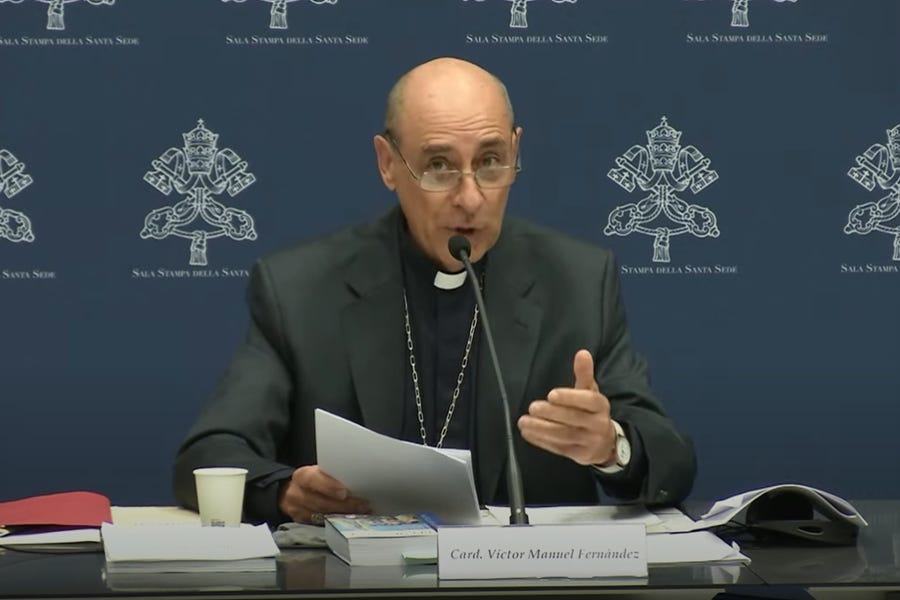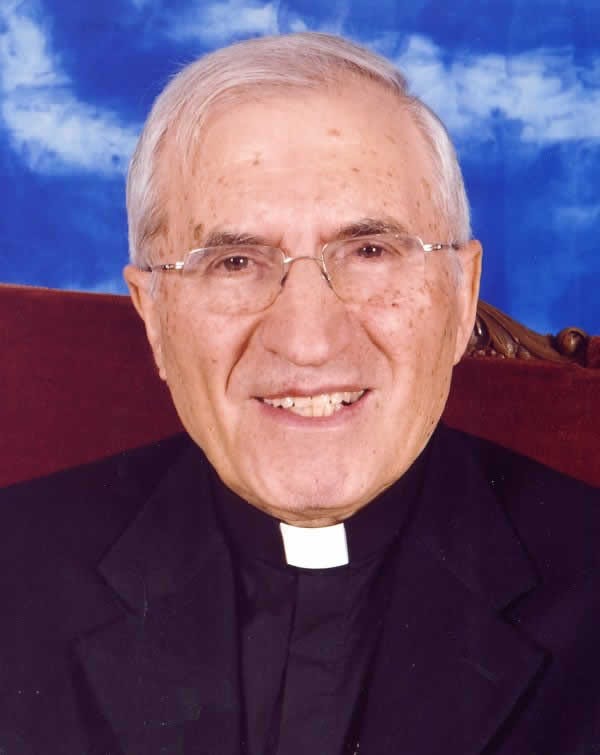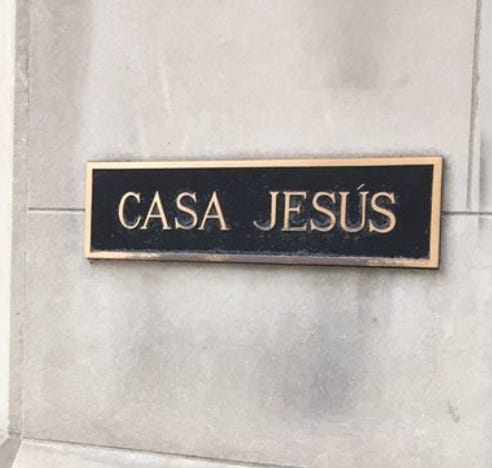The Vatican’s doctrine office offered a cautiously positive assessment Thursday of alleged Marian messages emanating from Medjugorje, authorizing the local bishop to issue a declaration of “nihil obstat” (“nothing stands in the way”).

The Dicastery for the Doctrine of the Faith shared the judgment Sept. 19 in a 10,000-word “note,” approved by Pope Francis at an Aug. 28 audience with the dicastery’s prefect Cardinal Víctor Manuel Fernández and doctrinal section secretary Msgr. Armando Matteo.
As Fernández and Matteo discussed the note at a Vatican press conference, Bishop Petar Palić of Mostar-Duvno, Bosnia and Herzegovina, issued a nihil obstat decree.
According to the DDF’s note, “the nihil obstat indicates that the faithful can receive a positive encouragement for their Christian life through this spiritual proposal, and it authorizes public acts of devotion.”
The note said: “Evaluating the abundant and widespread fruits, which are so beautiful and positive, does not imply that the alleged supernatural events are declared authentic.”
“Instead, it only highlights that the Holy Spirit is acting fruitfully for the good of the faithful ‘in the midst’ of this spiritual phenomenon of Medjugorje. For this reason, all are invited to appreciate and share the pastoral value of this spiritual proposal.”
“Moreover, the positive assessment that most of the messages of Medjugorje are edifying does not imply a declaration that they have a direct supernatural origin. Consequently, when referring to ‘messages’ from Our Lady, one should always bear in mind that they are ‘alleged messages.’”
An estimated 50 million people have visited the village of Medjugorje, in Bosnia and Herzegovina, since June 24, 1981, when six youngsters reported seeing an apparition of a woman bathed in brilliant light.
The six — Ivan Dragičević, Ivanka Ivanković, Jakov Čolo, Marija Pavlović, Mirjana Dragičević, and Vicka Ivanković — identified the figure as the Gospa (“Lady” in Croatian).
They said the Gospa referred to herself as the “Queen of Peace” and shared messages calling for prayer, conversion, and fasting, which are reported to continue to this day.
The DDF note, entitled “The Queen of Peace,” outlined the “fruits” of Medjugorje, scrutinized the messages, offered a series of “clarifications,” and ended with a summary of the reasons for approving the nihil obstat declaration.
The Vatican has wrestled with the reported events at Medjugorje since 1981, but was able to issue a judgment following the publication in May of new norms on “the discernment of alleged supernatural phenomenon,” aimed at streamlining the process.
Since May, the DDF has issued 10 statements on alleged supernatural events in Europe, Asia, and the Americas, helping to clear a decades-long backlog.
The dicastery’s note said “the time has come to conclude a long and complex history that has surrounded the spiritual phenomena of Medjugorje,” acknowledging that “bishops, theologians, commissions, and analysts” had expressed contrasting opinions.
It said: “It is important to clarify from the outset that the conclusions of this note do not imply a judgment about the moral life of the alleged visionaries.”
The DDF also “strongly advised” that “pilgrimages are not made to meet with alleged visionaries but to have an encounter with Mary, the Queen of Peace.”
Among the fruits associated with the shrine, the dicastery highlighted vocations to the priesthood and religious life, and “genuine conversions of people who had been far from God and the Church.”
The note said the “central aspects” of the Medjugorje messages included an emphasis on peace, Christocentrism (the centrality of Jesus), the call to conversion, prayer, fasting, the Mass, and sacramental confession.
“The messages overall possess great value and express the constant teachings of the Gospel in different words,” it said.
“However, a few messages stray from these positive and edifying contents and even seem to go so far as to contradict them. As a result, one should be attentive lest these few confused elements overshadow the beauty of the whole.”
The DDF offered “clarifications” of messages that contained “reprimands and threats,” as well as those with instructions concerning St. James parish in Medjugorje.
It said that exhortations to parishioners were “an understandable expression of the alleged visionaries’ intense love for their parish community.”
“However, Our Lady’s messages cannot replace the ordinary role of the parish priest, the pastoral council, and the synodal work of the community regarding decisions that are the subject of communal discernment, through which the parish matures in prudence, fraternal listening, respect for others, and dialogue,” the dicastery said.
In conclusion, the note said its observations created the conditions “to proceed with the determination of a nihil obstat.”
“Through the nihil obstat about a spiritual event, the faithful ‘are authorized to give it their adherence in a prudent manner,’” it explained.
“While this does not imply a declaration of the supernatural character of the phenomenon in question — and recalling that the faithful are not obliged to believe in it — the nihil obstat indicates that the faithful can receive a positive encouragement for their Christian life through this spiritual proposal, and it authorizes public acts of devotion.”
“Such a determination is possible insofar as many positive fruits have been noted in the midst of a spiritual experience, while negative and dangerous effects have not spread among the People of God.”
The note underlined that Archbishop Aldo Cavalli, the apostolic visitor for the parish of Medjugorje, would continue to fulfill his duties, which now include ensuring that the DDF’s note is “included as an introduction in any publication that collects the messages.”
Cavalli will also “discern any future messages — or past messages that have not yet been published — and should authorize them before any publication.”
At the Sept. 19 Vatican press conference presenting the note, Cardinal Fernández addressed what he called the “weak points” of the Medjugorje messages.
He said: “Problematic for some is the frequency of the messages, which do not really add anything and sometimes insist too much on the need to listen to these messages: ‘Listen to my messages,’ ‘accept my messages,’ ‘live my messages.’”
“Sometimes, even Our Lady speaks of her plans of salvation and insists that they be accepted, as if she had plans other than God’s. In this sense, there appears the danger of creating excessive dependence concerning apparitions and messages.”
He also addressed criticisms of the visionaries and their ecclesiastical circle.
“Some point out the absence of heroic virtues: but it is not necessarily the case that people who receive charismatic gifts or messages must exercise the virtues to a heroic degree,” he said.
“This is required for a beatification, and when beatifying someone there is a very important criterion: beatification does not imply recognizing as authentic the alleged supernatural phenomena experienced by that person. Both of these things must be separated.”
He also referred to the case of Fr. Tomislav Vlašić, who was excommunicated in 2020.
“He was a man with many problems and confusions, but it must be made clear that his moral and sexual failings did not involve the alleged seers but other outside people, especially in Italy,” Fernández said.
The cardinal said “Vlasic was provisionally in charge in the parish of Medjugorje for a short time,” but did not serve formally as the seers’ spiritual director.
He also addressed the long conflict between the Franciscans, who oversaw the parish, and local bishops, which he said went “far beyond Medjugorje.” While tensions remained, it was “water under the bridge” at the shrine, he said.
“The nihil obstat does not resolve or close everything for the future,” Fernández noted. “It is a determination open to developments in time and space.”
“In this case we are talking about married people with children, people working in society, people living in the midst of the world subjected to temptations like everyone else, and not protected by the religious context of a convent.”
“However, the authorization of public devotion to Mary, Queen of Peace, will always remain firm.”



